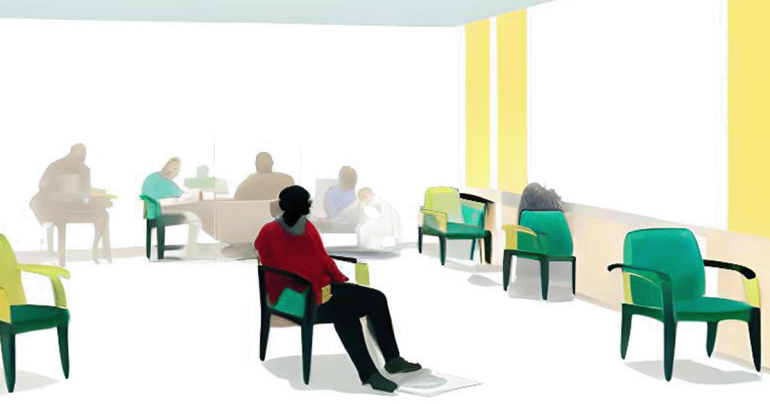3DN researchers have released findings from a study comparing how autistic and non-autistic adults experience barriers to health care.
The research shows that autistic adults experience substantially more barriers to health care than non-autistic adults, and it outlines what can be done to break those barriers down.
“It is a privilege to share these findings arising from the Australian Longitudinal Study of Autism in Adulthood,” says lead author Sam Arnold. “Our study quantifies the significant health care barriers experienced by autistic people, and the impact of gender diversity, anxiety and a lack of social support that can compound those barriers.”
“Based on our results, we have thought deeply about what can be done to make health services fairer and better for people on the autism spectrum. Working with our autistic research advisors, our most important recommendation is the need for a roadmap for improving the health of autistic people. So I’m really excited that the government recently announced its commitment to creating such a roadmap.”
Identifying the barriers
The researchers asked autistic and non-autistic people about the barriers they experience when accessing health services, such as going to see the doctor. Participants were presented with statements about health services and asked to select ones they had experienced.
The results are stark. Over three-quarters of autistic participants reported at least one barrier. In contrast, over three-quarters of non-autistic participants reported no barriers at all.
Examples of barriers identified much more by autistic people were
- Difficulty handling the doctor’s waiting room
- Trouble following up on care
- Difficulty identifying and reporting pain and other physical symptoms
- Fear, anxiety, embarrassment or frustration
Of concern, one in five autistic adults reported eight or more barriers.
The results show that for many autistic adults, accessing health care is extremely difficult.
Researchers also looked at why some autistic people were more likely to experience greater barriers to accessing health care. These were autistic people who
- Identified as gender diverse
- Reported higher levels of anxiety
- Had greater levels of disability
- Were less satisfied with their social supports
How can we break down the barriers?
This study provides fertile ground for identifying and developing better health policies and practices. The researchers outline some directions, such as better training for clinicians and implementing greater and more targeted supports for autistic patients.
But the study’s key recommendation is that a national roadmap should be developed for improving the health of autistic people. This would be similar to the recently released National Roadmap for Improving the Health of People with Intellectual Disability.
“A roadmap specifically for improving the health of autistic people would be a game changer,” Sam says. “It would identify the reasonable adjustments to mainstream care, training and education needed, as well as specialised models of care, to ensure autistic people can access and enjoy the same level of health care as everyone else.”
“Everyone has a right to good quality health care. I hope this study helps to shift the current health care system towards accommodating neurodiversity.”
Find out more
- Read the full publication Barriers to healthcare for Australian autistic adults, Autism, 2023, https://doi.org/10.1177/13623613231168444
- The Australian Government’s announcement on the National Roadmap to Improve the Health and Mental Health of Autistic People
- Dr Sam Arnold is Visiting Fellow at 3DN. View Sam’s research profile
Share online
